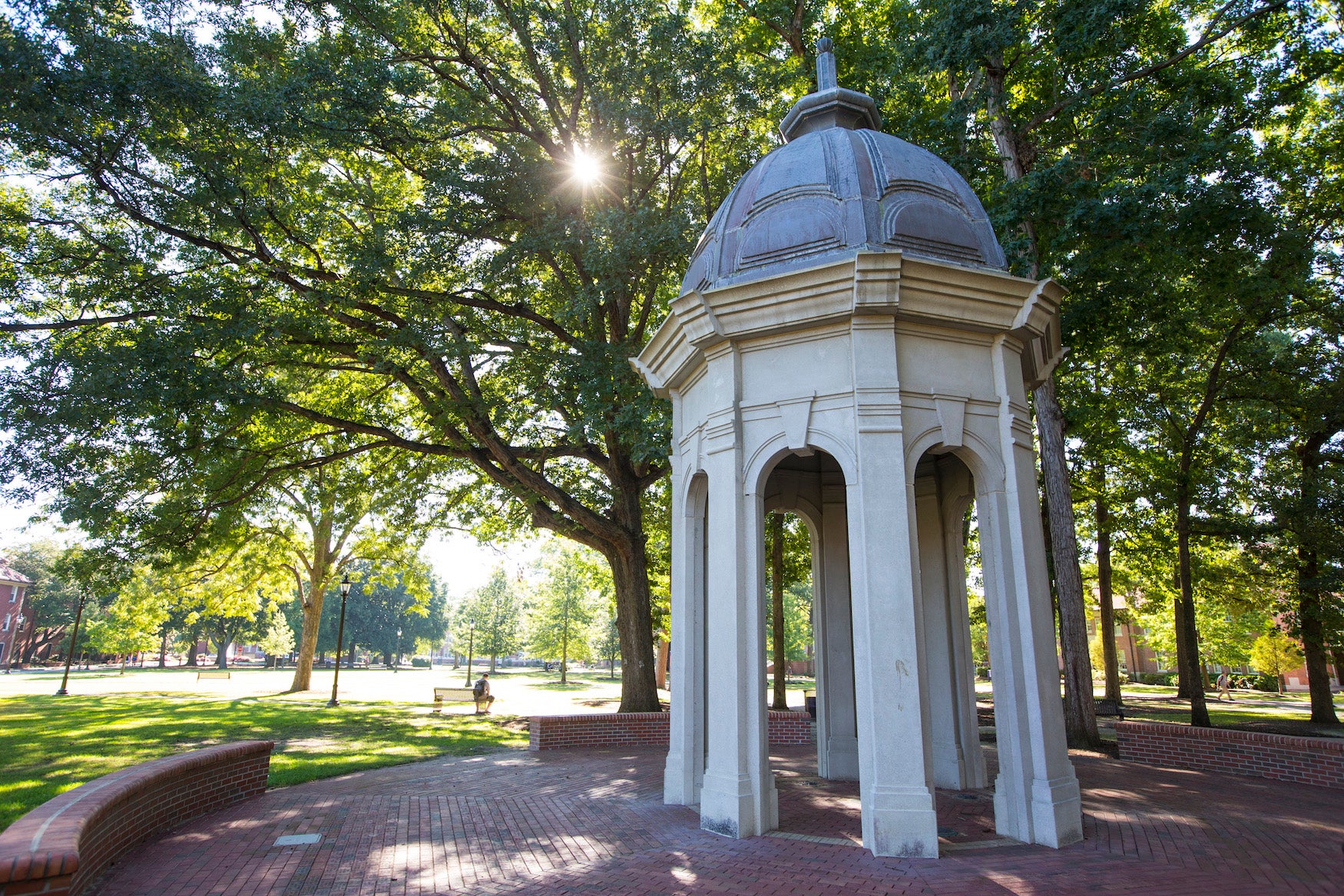ECU faculty receive national funding to work with veterans and their families
Three East Carolina University faculty members have been awarded almost $98,000 in grant funds from the National Endowment for the Humanities to work with veterans and their families.
Dr. Jennifer McKinnon, associate professor of history in the Maritime Studies Program and project director, Dr. Anna Foula, associate professor of film studies in the Department of English, and Dr. Anne Ticknor, associate professor of literacy studies in the College of Education, comprise the interdisciplinary research team.
The faculty members will work with Saipanese veterans of contemporary wars, surviving civilian participants of World War II and families of military service personnel to learn more about war’s universal impact on humanity.
 McKinnon has collaborated with the Saipan community for nearly 10 years on heritage sites on land and under water. Froula has published widely on the representations of war and service personnel in popular culture as well as advises student veterans at ECU. Ticknor, a literacy educator for 20 years, researches identities.
McKinnon has collaborated with the Saipan community for nearly 10 years on heritage sites on land and under water. Froula has published widely on the representations of war and service personnel in popular culture as well as advises student veterans at ECU. Ticknor, a literacy educator for 20 years, researches identities.
Two ECU proposals were among 15 projects to receive funding through the NEH Dialogues on the Experience of War grant program. Part of NEH’s Standing Together initiative, the grants provide opportunities for veterans, through the study and discussion of important humanities sources, to think more deeply about issues raised by war and military service.
The funding will allow ECU faculty to travel to Saipan for two weeks in July to prepare community members with interest in humanities, history, and veteran affairs to become discussion leaders.
The researchers will lead discussion groups with local, primarily Chamorro and Carolinian, veterans to develop an understanding of war as a shared human experience and the associated cultural heritage of war on Saipan. Discussion will center on the Spanish-Chamorro Wars of the 17th century and the World War II Battle of Saipan as bookends to the history of resistance and aggressions in the islands. These wars were chosen because they represent the complexities of all of the participants of war, combatant and non-combatant, in a colonial and post-colonial context.
Participants will gain an understanding of the meaning of war from different perspectives through the exploration of terrestrial and underwater cultural heritage, film, history, memoirs, children’s historical fiction, poetry, paintings and graphic novels.
“Underwater cultural heritage, just one of many humanities sources used in this project, is not typically thought of as an entry or gateway into discussing large societal issues like identity, conflict or even the potential for healing,” McKinnon said. “This is why I’m so excited to explore this possibility with my colleagues and the community.”
McKinnon, Froula and Ticknor anticipate that the personal interactions with the physical remains of heritage sites as well as humanities texts and films will provide a new or renewed sense of cultural value for both the veterans’ experiences and the local conflict heritage.
NEH panel reviewers commented that the project was distinct from other proposals with significant potential for intergenerational impact. Since launching the initiative in 2014, the NEH has awarded more than $7.7 million for humanities projects that serve veterans or chronicle their experiences.
For more information about maritime studies at ECU, visit http://www.ecu.edu/history/.
For more information about the English department, visit http://www.ecu.edu/english/.
For more information about literacy studies, visit http://www.ecu.edu/cs-educ/LEHE/read/literacy_home.cfm.
-by Crystal Baity